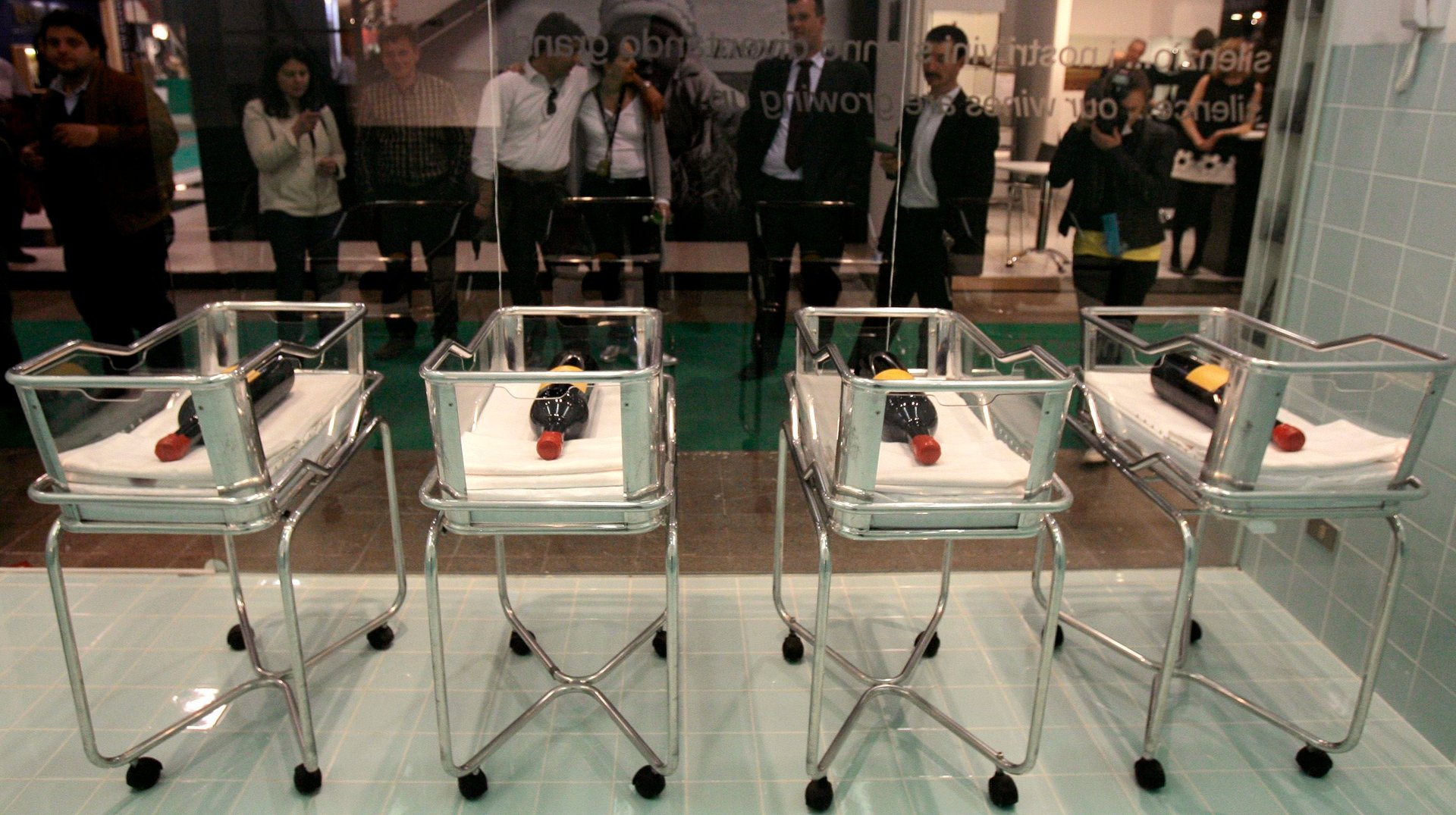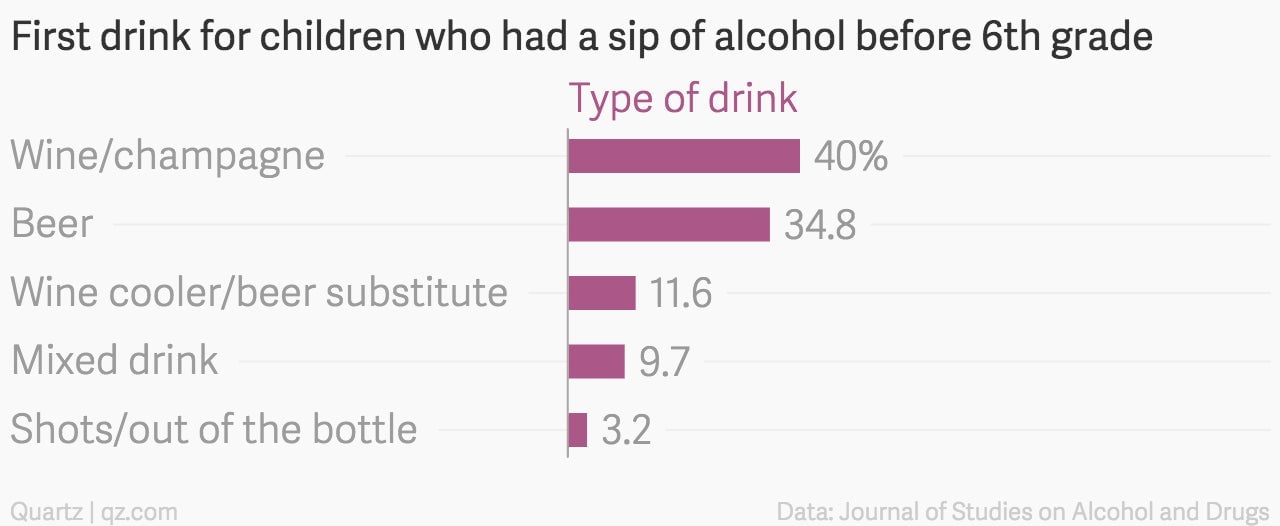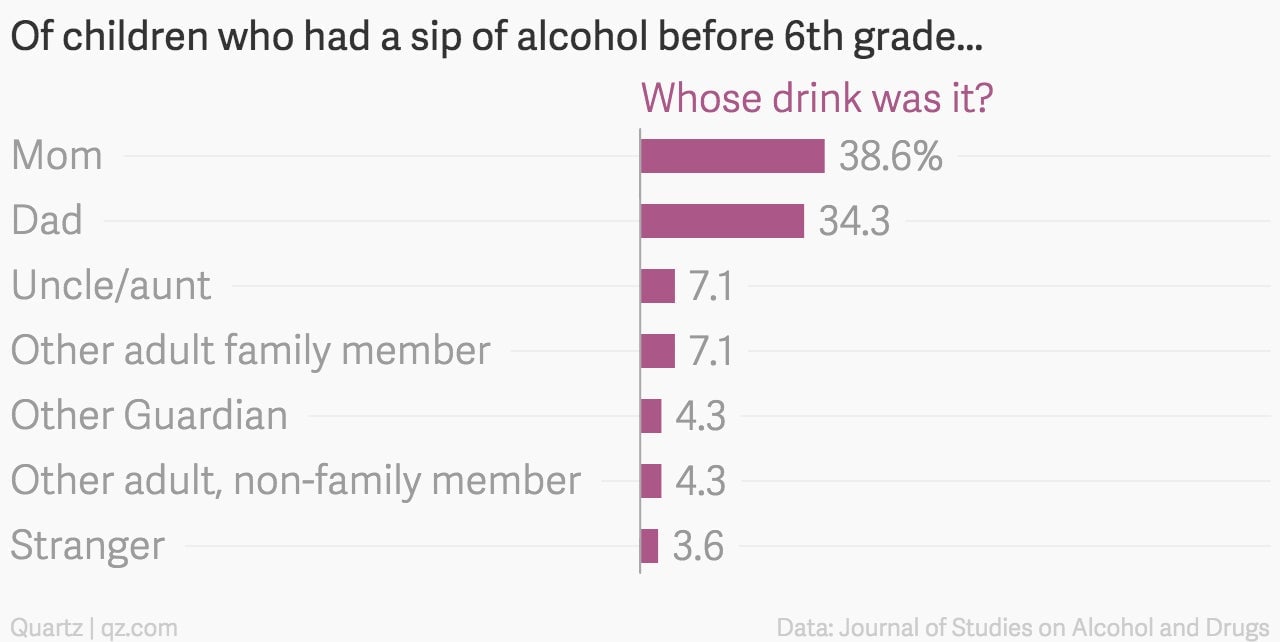Study: Children allowed to sip alcohol risk becoming early drinkers
Giving your child a taste of the good stuff might not do her any favors down the road.


Giving your child a taste of the good stuff might not do her any favors down the road.
That’s according to researchers at Brown University, who surveyed 561 middle school children in Rhode Island over a period of three years, and found that the ones who were allowed to sip alcohol before the sixth grade were more likely to drink, and get drunk, by the time they began high school.

Of the students surveyed, 29.4% said they had sipped alcohol before the sixth grade, according to the study, published in the Journal of Studies on Alcohol and Drugs. Those respondents were an average age of 7.6 years old when they took their first sip, and 93% of them stopped after the first sip. Wine was the most common drink.

Mothers were most likely to offer that first drink, according to the study.

Most of the first sips were at a party or social gathering, or during a special occasion.
Of course, other factors could play into the development of a young adult’s drinking habits, including the attitude of the parents after that first taste. The researchers also asked the children how they and their parents reacted after their first sip. Of the 35% of students who said their parents offered them more sips after the first one, 25% took them up on the offer. About 25% of students said they asked their parents for more sips, and 15% said they asked and their parents always said yes.
A study of 5,700 teenagers in England, cited by the Guardian, found that children who had seen their parents drinking were twice as likely to have been drunk on multiple occasions.
The findings of the US study add to the debate about the wisdom (often associated with French culture) of introducing alcohol to children early to remove the taboo and discourage binge drinking.
In a Dartmouth analysis of a 2007 international survey (pdf, pg. 13-14), one-third of 15- and- 16-year-olds in the US reported drinking in the last 30 days—the only country with a lower percentage was Iceland.